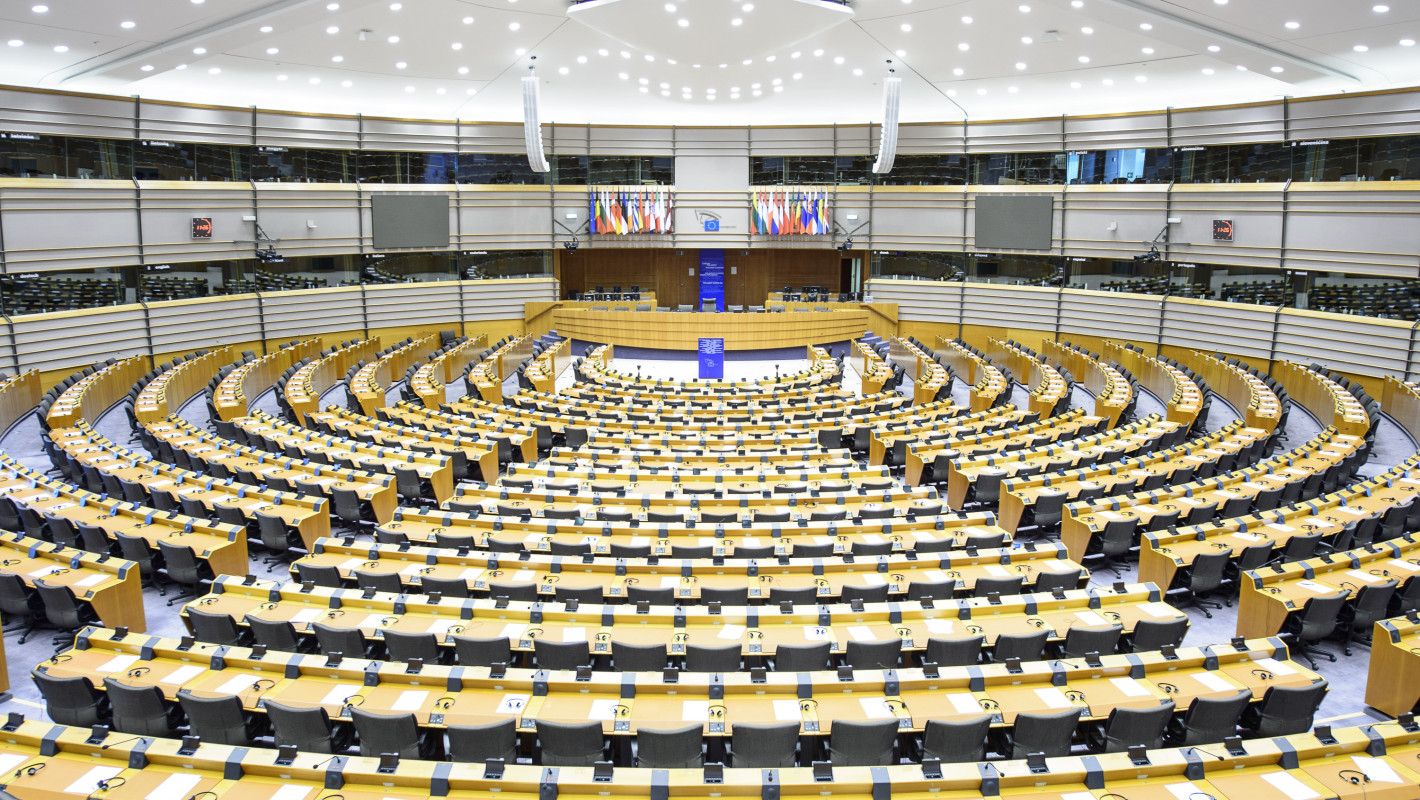Securing supply chains costs money – but inaction will cost more

Businesses have a growing responsibility when it comes to procuring raw materials: they have to plan ahead, diversify and manage risks. But if businesses are to become more resilient, they must do more than plan strategically; they also need to utilise suitable financial instruments. To do that, they look to banks for a wide range of options, from inventory financing to safeguarding trades. There is no doubt, however, that resilience in the commodities supply chain is in the best economic interests of everyone. It’s essential that governments create a framework in which enterprises and banks can work together effectively.
Businesses are facing new logistics challenges
Just-in-time supply chains are now a thing of the past. Geopolitical tensions, error-prone systems and the increase in China’s hold on critical commodities, not to mention its virtual monopoly on the subsequent processing of rare earth metals, are forcing businesses to rethink their entire business model. Today, securing commodities means connecting with alternative suppliers, increasing inventories and signing long-term contracts. This is great for resilience, but it does cost money.
Businesses that wish to source commodities from multiple suppliers need more than just new business partners; they also need to expand their logistics, quality assurance and contract management processes. Storing inventory ties up liquidity while also requiring a whole new infrastructure. And businesses that purchase directly from primary producers – from Africa or South America, for example – have to accept the seller’s conditions if they are to secure a long-term supply.
This transition is difficult, but necessary: the costs of supply-chain disruption would put many enterprises out of business. Small and medium enterprises, in particular, are in need of support.
Banks offer solutions – from working capital to inventory finance
There are already powerful private sector financial instruments designed to meet these challenges. Banks provide support for businesses as they transition to more resilient sourcing models.
- Inventory finance allows businesses to finance the purchase of inventory without straining the balance sheet. Instead of tying up capital in raw materials, the enterprise sells the inventory to a financing partner and receives liquidity immediately in return – but the materials remain in the warehouse and can be used later on in production. One example: an industrial enterprise has increasing demand for nickel and stores large amounts of it. They then sell the nickel to a finance company and purchase it back as needed – the nickel is available to them at all times, but it doesn’t affect their liquidity.
- Working capital solutions help businesses to remain liquid even if they have not yet been paid, or payment is delayed due to problems with global supply-chains. Instruments such as factoring, forfaiting or supply chain finance allow them to receive money more quickly for their claims or better control credit periods. Example: a medium sized German enterprise sells semi-manufactured goods to clients in Europe. Their bank then provides prefinancing for their unpaid invoices, which in turn frees up liquidity to purchase raw materials – with no need for them to wait for their clients to pay.
- Commodity trade financing protects cross-border commodities trade, in particular when purchasing from new suppliers or from geopolitically unstable markets. Banks provide documentary credit, guarantees or payment insurance in order to reduce the risk for both the buyer and seller. One example: a machinist purchases rare earth minerals from central Asia – the bank provides documentary credit, which guarantees that the supplier will receive the payment as soon as the goods have been loaded on the transport. This facilitates trust between business partners; without it, the trade would not be possible.
Of course, the private sector cannot be solely responsible for supply chain resilience. Particularly in industries that rely heavily on commodities, it is essential that enterprises can work well with public authorities. It’s true that companies, for business reasons if nothing else, are largely responsible for ensuring that supply chains are stable. However, it should be clear that securing commodities is also in the best interests of the broader population and is thus also a strategic and political matter.
The state is already providing support: now we need speed and efficiency
Commodities policy is regional economic policy. The state simply cannot limit itself to a purely regulatory role. In Germany, in particular, home to many SMEs, it simply isn’t realistic to think that individual businesses can be solely responsible for securing the raw materials they need.
One step in the right direction is the German raw materials fund, created in 2024. The KfW (a German promotional bank) is the central point of contact for the fund. The German government participates in projects that extract, process and recycle critical raw materials with up to a billion euros. The fund takes over where private-sector investing is simply not enough. The fund is particularly useful in the early phases of a project, or for projects in risky markets. In both cases it can provide important leverage – but to do so, it must be put into use quickly, pragmatically and with clear governance.
There is another well-established and proven instrument with even greater potential available: UFK guarantees.
UFK guarantees: effective, but underutilised
German state guarantees for untied loans (UFK guarantees) allow banks to protect commodities projects abroad against economic and political default risks. They are a strategic instrument for securing supply chains and become particularly relevant when private financing would not be possible without a state guarantee. One major criterium for receiving a UFK guarantee is that German offtakers receive raw materials on the basis of a long-term offtake agreement and that the intermediate product is processed or used in Germany. As of 2023, this also explicitly applies to climate-friendly projects, such as those relating to battery technology or hydrogen production. This expansion - known as a Klima-UFK (climate untied loan guarantee) opens up new opportunities for securing future-proof transition projects.
Despite the expansion, not many businesses are taking advantage of this instrument: at the end of 2024, there were 13 active guarantees totalling 10.9 billion euros. Approximately 8.0 billion euros were dedicated to projects involving raw materials (ten guarantees) and approximately 2.9 billion euros were dedicated to transition projects (three guarantees). But the German government has permission to guarantee up to 70 billion euros worth of projects. After including direct investment guarantees from the same time period (2024: 27.4 billion euros), it becomes clear that there is a potential total of 30 billion euros in guarantees that is simply not being used.
If Germany is to make full use of this potential, some changes will be necessary:
- Reform the 4:1 rule: currently, a maximum of one quarter of the cumulative value of raw material deliveries is covered by the guarantee. Raising the total percentage that can be guaranteed would make commodities financing both more attractive and more realistic.
- Flexible contractual terms: revolving supply contracts, or those with a shorter term, which are very common on many commodities markets, should also qualify for a guarantee.
- UFK guarantees should also be available within Germany: projects for processing, storing or recycling raw materials domestically are often just as risky as projects abroad, and just as systemically important.
Classic UFK guarantees, including the new Klima-UFK, would be much more effective if they were also available for domestic projects, which in turn would facilitate and promote more raw material deliveries to Germany.
Conclusion: financing is essential for securing supply chains
When it comes to raw materials, sovereignty does not begin in a government ministry or on a map, but with specific projects – which need financing. Banks already have the necessary experience, structures and risk management processes in place. The government, in turn, provides important guarantee instruments. The trick now is to ensure that both of these mechanisms work well together.
In the end, one thing is very clear: securing resilient supply chains for raw materials costs money, but the consequences of inaction are far, far more expensive. Access to raw materials, particularly scarce raw materials, is essential for the future of German industry.
Securing supply chains costs money

Contact
Phillip Lang
Corporate Finance

